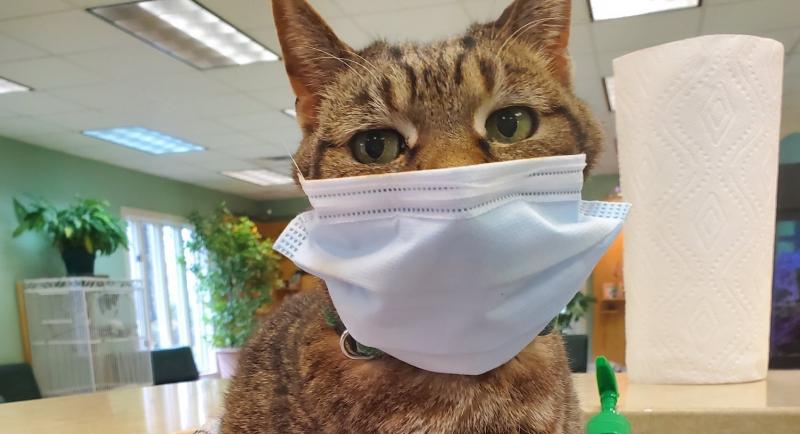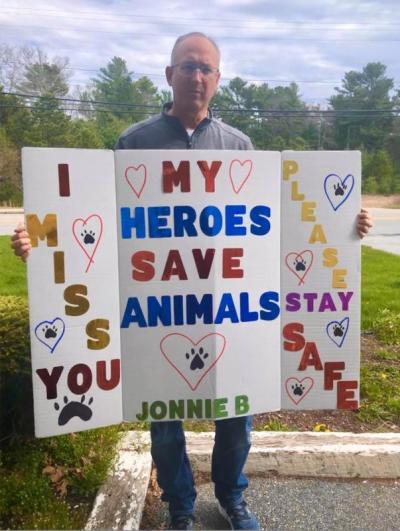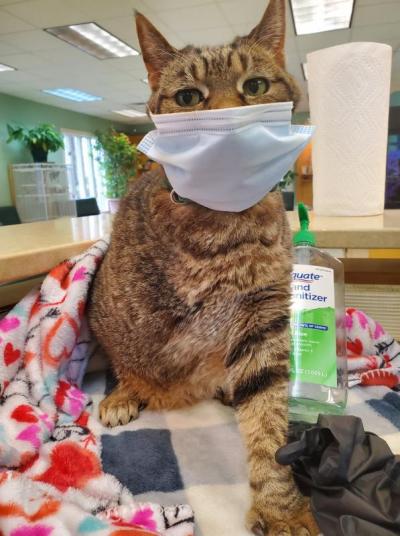Animal hospitals work through pandemic ruff patch
Cats have nine lives, and dog’s are a man’s best friend, but coronavirus has put a stressful burden on local animal hospitals who work to make sure those cats stay alive and those dogs are still around to be best friends with their owners.
From a shortage of personal protective equipment, to lengthy check-ups, veterinarians are experiencing an overwhelming amount of work throughout the pandemic.
Matt Gould, a vet technician at the Mattapoisett Animal Hospital and son of owner Dr. Willard J. Gould, said that operations have definitely changed since the start of the virus.
A quarter of its staff is immuno-compromised, so he said that those in the office are working from 7:30 a.m. straight until 6:30 p.m, which Gould said has been “pretty stressful” on the staff.
Although they’ve seen anywhere from less than a half to three-quarters of its daily patients, new appointment procedures put a strain on the vets.
When owners come for their appointment, they have to call the office from the parking lot and wait for a vet technician to come out and record the history of the patient’s current ailment. The pet is then taken in and examined.
The doctor then has to call the owner back and discuss if they need to take any next steps such as blood work and get permission to do so. Then the office has to call back the owner to pay for the appointment and medication before having the patient brought out to the car.
Although there are less coming into the office, Gould said the office has seen a constant flow of about 15 to 20 patients a day because with owners home with their pets, they can notice more ailments.
Non-essential procedures like nail clippings have been put on hold, and surgeries have been postponed because of a lack of surgical equipment like N95 masks and gloves.
Because of the mad grab for these products, the office only has about 50 pairs of surgical gloves and doesn’t expect more until July.
“We’re second to the human world,” said Gould, so animal hospitals are most affected when these items are in demand.
Marion Animal Hospital also has the animals it treats come in alone, and relies on phone calls and online forms to learn about patients’ medical history. In some cases, it has actually meant more communication with owners.
“The exception for pets that are going to be euthanized because that is a moment you want to be there for,” said Eli Nelson, the practice manager.
The pet hospital has “pretty much the same level of appointments,” except for grooming, which they have paused.
As far as helping with the shortage of medical equipment, Nelson said his team explored using the facility’s autoclave (a high pressure and temperature sanitization chamber) to clean equipment, but found that it might actually destroy them.
For now, they are just trying to use their own equipment as much as possible.
Nelson reminds owners that vets don’t yet know if coronavirus can transfer to pets. Though it may not be as bad as vets initially feared, he still recommends that anyone who gets the virus keep their distance from pets.













